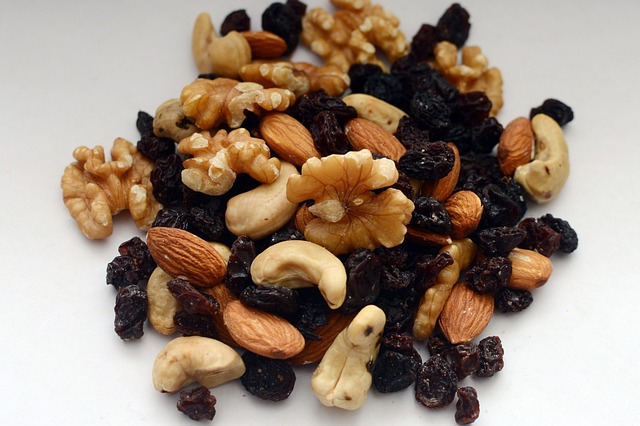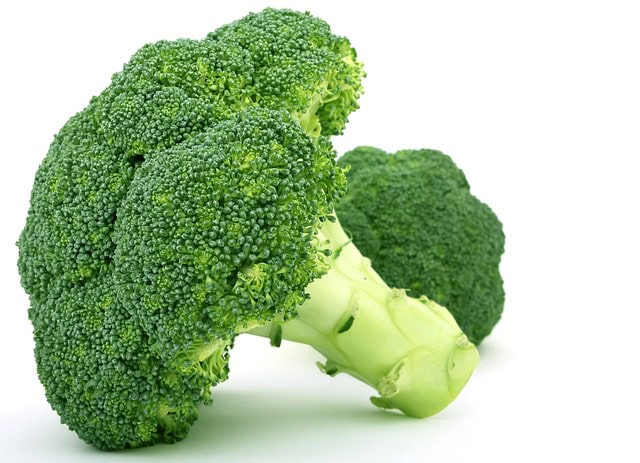-By: Bhavisha Changrani
In recent years, a growing movement has taken root in the world of healthcare: the concept of using food as medicine. As the prevalence of chronic illnesses continues to rise, ranging from heart disease and diabetes to obesity and autoimmune disorders, more and more healthcare professionals, researchers, and policymakers are turning to nutrition as a powerful tool for prevention and treatment. This shift marks a significant departure from the traditional medical model, which has largely focused on pharmacological interventions. Instead, it highlights the critical role of diet and nutrition in supporting overall health, addressing the root causes of chronic disease, and even enhancing the efficacy of medical treatments.

The Link Between Nutrition and Chronic Disease
Chronic illnesses, which are responsible for the majority of deaths and healthcare costs globally, are often driven by poor dietary patterns. Diets high in processed foods, unhealthy fats, excessive sugar, and low in essential nutrients contribute to the development of conditions such as Type 2 diabetes, cardiovascular disease, obesity, and even certain cancers.
For example, studies have shown that diets rich in fruits, vegetables, whole grains, lean proteins, and healthy fats can significantly reduce the risk of heart disease. Conversely, diets high in trans fats and refined sugars contribute to inflammation, insulin resistance, and elevated cholesterol levels, all of which are precursors to chronic conditions.
The impact of diet on chronic disease is not just theoretical—it is backed by substantial scientific evidence. The Mediterranean diet, which emphasizes whole foods like olive oil, fish, nuts, and vegetables, has been consistently shown to reduce the risk of heart disease, improve brain health, and enhance longevity. Similarly, plant-based diets have been linked to improved blood sugar control and reduced cancer risk.
Food as Preventative Medicine
One of the most compelling aspects of using food as medicine is its potential to prevent disease before it starts. Prevention is more cost-effective than treatment, and many chronic diseases are preventable through simple lifestyle changes, such as improving dietary habits. Nutrient-dense foods like leafy greens, berries, nuts, seeds, and fermented foods can strengthen the immune system, improve gut health, and reduce systemic inflammation—all of which are critical in warding off illness.
For example, regular consumption of foods rich in antioxidants, like berries, can help protect cells from oxidative stress, which is linked to aging and the development of chronic diseases. Omega-3 fatty acids, found in fatty fish and flaxseeds, have been shown to reduce inflammation, lower blood pressure, and support brain health. These foods not only nourish the body but actively support its ability to fight off disease.

Food as a Tool in Treating Chronic Illnesses
The idea of using food not only as a preventive measure but also as a treatment is gaining traction among healthcare providers. In certain cases, dietary changes have been shown to reverse or significantly improve chronic conditions.
One striking example is Type 2 diabetes. Evidence is mounting that lifestyle interventions, including adopting a low-carbohydrate or plant-based diet, can effectively manage and even reverse the condition. Patients with Type 2 diabetes who make significant dietary changes often experience improved blood sugar control, reduced reliance on medication, and even the potential for complete remission.
The benefits of nutrition go beyond just preventing or reversing chronic diseases. In the context of cancer treatment, emerging research suggests that specific dietary patterns, such as the ketogenic diet or a high-fiber diet, can complement conventional treatments like chemotherapy and radiation. Certain nutrients, such as vitamin D, curcumin (found in turmeric), and cruciferous vegetables like broccoli, have been shown to inhibit the growth of cancer cells in laboratory studies.

Integrating Nutrition into Healthcare: Challenges and Opportunities
Despite the growing recognition of food as medicine, there are significant challenges to integrating nutrition into mainstream healthcare. Traditional medical education places little emphasis on nutrition, leaving many healthcare providers without the knowledge or tools to recommend dietary interventions.
Moreover, the healthcare system itself is often structured around the use of pharmaceuticals and treatments that may provide quicker results, whereas the benefits of dietary changes can take time to manifest. There’s also the issue of patient adherence to dietary changes—many people find it difficult to modify long-standing eating habits or have limited access to healthy food due to socioeconomic factors.
However, these challenges are not insurmountable. Several healthcare organizations and institutions are working to close the gap by providing more education on nutrition for medical professionals. For instance, the American College of Lifestyle Medicine offers certifications in nutrition and lifestyle medicine for doctors. Additionally, nutrition-focused healthcare practices are increasingly offering support through dietitians, nutritionists, and holistic health coaches who work alongside physicians to create personalized nutrition plans for patients.
Public health initiatives, such as promoting access to healthier food options and improving food labeling, also play a crucial role in helping people make healthier choices. Encouraging the development of community gardens, food banks, and local farmer’s markets can also help combat food insecurity, making nutritious options more accessible.

The Role of Functional Medicine and Holistic Approaches
Functional medicine and integrative health practices are increasingly focusing on nutrition as a cornerstone of treatment. These approaches view the body as an interconnected system, rather than isolated parts, and aim to address the underlying causes of disease rather than just treating symptoms. Functional medicine practitioners often work closely with patients to evaluate their nutrition, lifestyle, and environmental factors, creating a holistic treatment plan that incorporates dietary changes as a primary tool for healing.
The Future of Food as Medicine
Looking ahead, it seems clear that the movement to integrate nutrition into healthcare will only continue to gain momentum. As research into the connection between diet and disease expands, healthcare providers will increasingly recognize the importance of nutrition in both the prevention and treatment of chronic illnesses.
For the general public, this shift presents a significant opportunity to take control of one’s health through food. As the phrase “you are what you eat” becomes more widely understood in a scientific context, people are becoming more mindful of the foods they consume. From gut-healing fermented foods to heart-healthy omega-3s, there is a growing recognition that food is not just fuel—it is medicine.

Conclusion
In conclusion, food as medicine is an exciting and transformative approach to healthcare that offers enormous potential for preventing and treating chronic diseases. By embracing the power of nutrition, we can not only improve individual health outcomes but also create a more sustainable and cost-effective healthcare system that focuses on the root causes of disease, rather than just managing symptoms. With continued research, education, and integration of nutrition into healthcare practices, the future of food as medicine looks bright.













